Tunisia’s democracy is indeed struggling, write Shadi Hamid and Sharan Grewal. But Tunisia nonetheless continues to stand out in ways that, for the region at least, are unusual. This piece originally was originally published by the Washington Post.
The notion of a Tunisian “model” is a convenience for Western observers who still hope that all is not lost from the once heady optimism of the Arab Spring. It offers, however, little solace to Tunisians themselves, who sense—correctly—that their democracy remains imperfect. Tunisians, who haven’t lived under the sheer brutality of Egyptian dictatorship or the collapsing state structures of Yemen, aren’t comparing themselves to those countries; they are comparing themselves—rightfully—to what they wish they could be.
In our conversations with young Tunisians, we have often pointed out that Tunisia, unlike its neighbors, is at least relatively democratic. Our claims are often met with skepticism. The Tunisian rapper DJ Costa told one of us that: “We don’t have democracy in Tunisia. It’s like a man whose skin is dirty. For months he hasn’t washed himself, and then, one day, he puts on nice, expensive clothes. But you know him, who he really is.”
Well, who is he? Tunisia’s democracy is indeed struggling. It is failing to improve the economy and reduce corruption, overreacting to terrorist attacks and postponing important but potentially polarizing decisions. But Tunisia nonetheless continues to stand out in ways that, for the region at least, are unusual. That hundreds of Tunisians came out to protest the visit of Saudi Crown Prince Mohammed bin Salman isn’t necessarily surprising. But the images still were striking considering how much rarer such protests—or protests, in general—have become in the Arab world after the Arab Spring turned dark.
Under democracy, Tunisians enjoy the freedom to protest Mohammed bin Salman for Saudi Arabia’s assassination of the journalist Jamal Khashoggi, its devastating war in Yemen and its crackdown on women activists. Rule of law, meanwhile, isn’t just a nice idea but something real and practiced. The Tunisian Journalists’ Syndicate filed a lawsuit urging Tunisia to refer Mohammed bin Salman to the International Criminal Court. An independent judiciary responded by beginning an investigation. And perhaps most importantly, Tunisians could do all of this without fear of government retribution.
Tunisia represents both an exception and a threat to a new but ever-authoritarian Middle East.
These events are a small but powerful reminder of what Tunisia, despite its flaws and its struggles, can still teach us. It may not be a model, but it is, and can continue to be, an inspiration. And this is why—merely by existing—Tunisia represents both an exception and a threat to a new but ever-authoritarian Middle East. It’s no mistake that the only Arab Spring democracy is the one where people are protesting Mohammed bin Salman. Tunisia is the near-opposite of Saudi Arabia.
The Saudis’ killing of Khashoggi was the culmination of a long list of sins and offenses, each of which have now come under greater scrutiny.
Critics have focused on the Yemen war and understandably so. The humanitarian catastrophe unfolding there is perhaps the most egregious example of MBS’s recklessness. Yet Saudi Arabia’s increasingly destructive impact on the rest of the region predates MBS. From 2011, the Saudi authorities worked tirelessly to strengthen dictatorships in the wake of the Arab Spring. Saudi Arabia intervened militarily to crush the uprising in Bahrain, and provided billions to shore up the monarchies in Morocco, Jordan and Oman. In his new book “Into the Hands of the Soldiers,” New York Times journalist David Kirkpatrick provides new and damning details on just how instrumental Saudi Arabia and the United Arab Emirates were in fomenting the 2013 military coup that ended Egypt’s democratic experiment. In Egypt, they had a willing partner of the military general Abdel Fatah al-Sissi. In Tunisia they thankfully did not, and have—so far—been unable to push Tunisia off its democratic path despite considerable economic and diplomatic pressure.
Today, Tunisia offers lessons not just to its neighbors but also to the United States and Europe on how to deal with strongmen such as Mohammed bin Salman—not with business-as-usual, but with criticism, accountability and a faith that justice, however slow and uneven, can be done.
The Brookings Institution is committed to quality, independence, and impact.
We are supported by a diverse array of funders. In line with our values and policies, each Brookings publication represents the sole views of its author(s).

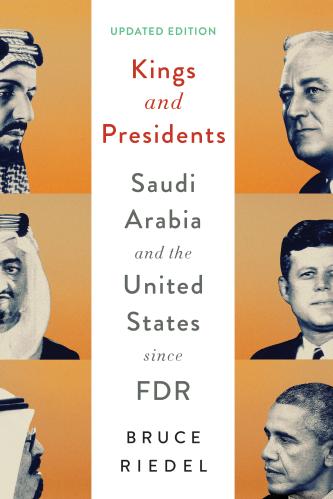
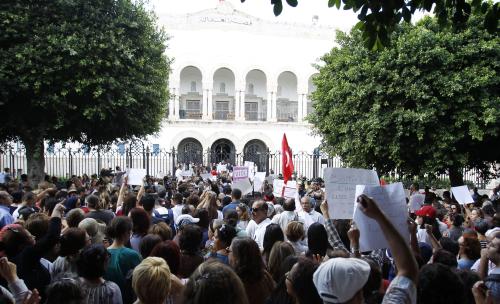
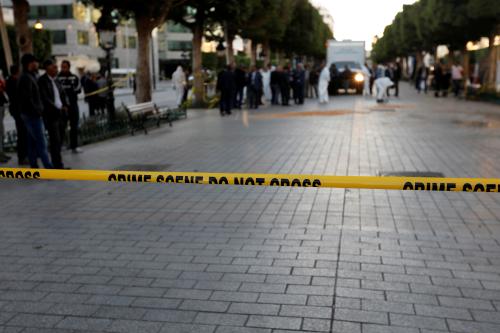
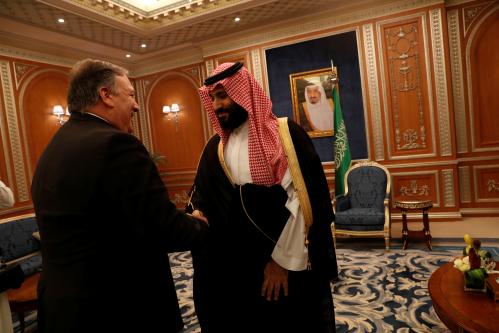


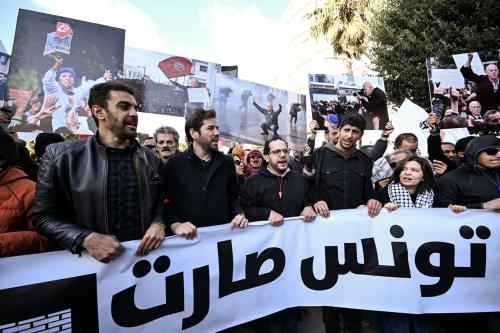
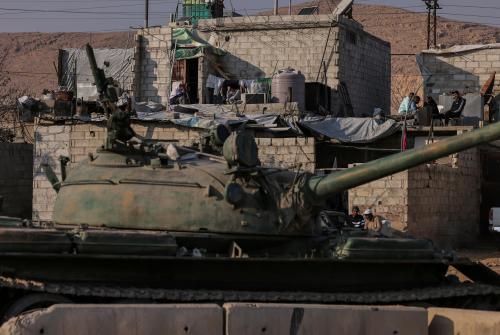
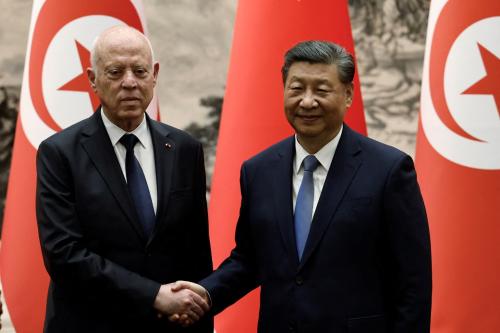
Commentary
Tunisia’s tough lesson for Mohammed bin Salman
December 1, 2018